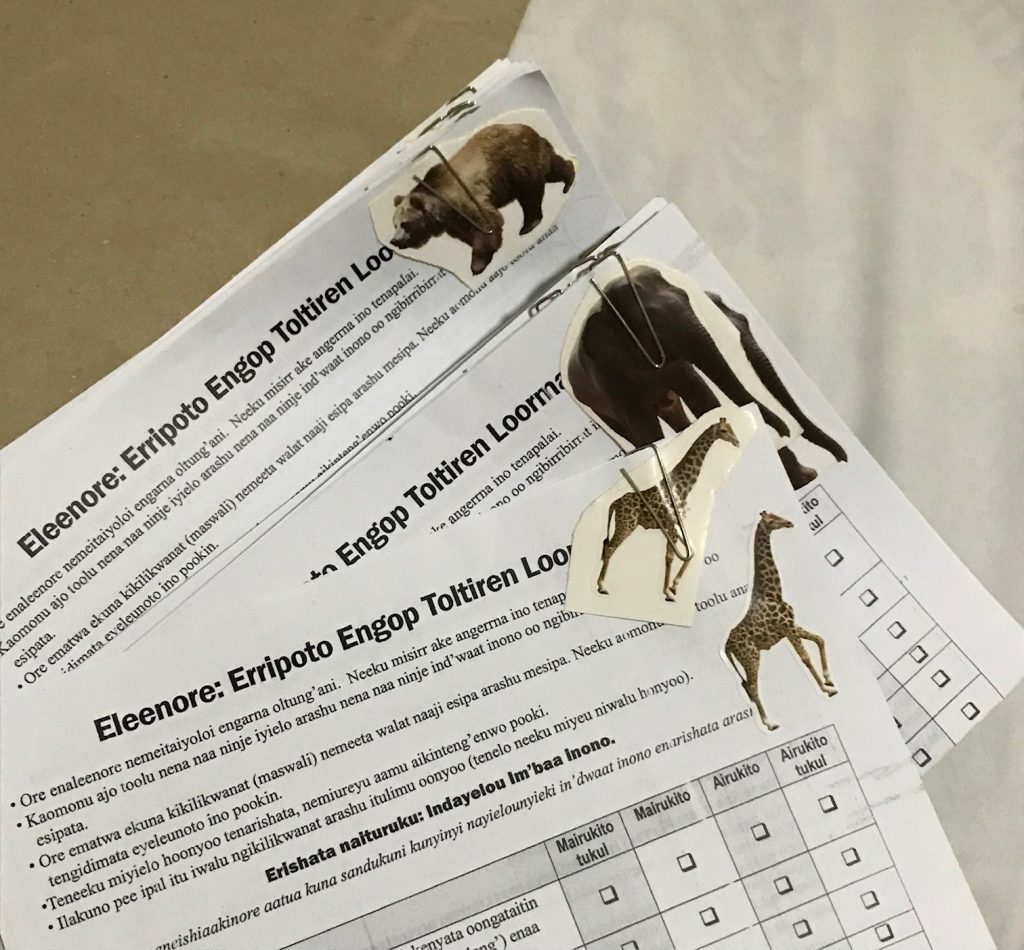There are some research design issues that make some aspects a bit complicated. One is that the research group, the Maasai, are mostly bilingual between their home language, Maa, and the language they learned in primary school, Kiswahili, which is the lingua-franca and unifying language of Tanzania.
In the rural areas, Maa is the dominant language. I speak some basic Kiswahili (not nearly what I hope to know someday) and only polite words in Maa. So, I’m dependent upon translation helps. Fortunately, Google Translate has a Swahili translation function that is fairly good. I can start by preparing this and having someone check it. It saves time (and money from the budget). It also helps me practices my vocabulary, as I’m checking how the translation is rendered into Kiswahili and back translating into English before the Kiswahili speaker check.
With Maa, it is all translated by a native speaker, which I then ask another Maa speaker to check. The challenge is that the vocabulary has not needed to be developed previously in some important research terms for a consent form! Fortunately, for climate change vocabulary, early on I realized that I would need a tri-lingual list of key vocabulary that is used consistently in the lessons. The challenge is that my two climate science expert stakeholders basically had to create quite of bit of descriptive Maa language to reflect the concepts! As probably the most educated and experienced Maasai in climate science in the nation, I’m so fortunate to have them on my stakeholder group!

Above: The surveys in Maa. See below for beginning explanation of the animal stickers!
So, I have consent form information and consent forms in parallel Kiswahili and Maa. And I now how the surveys in both Kiswahili and Maa. The surveys are SO important, as these are the only method of collecting data due to working with vulnerable people groups: youth and women who have never had the opportunity to learn how to read or write.
Because of working with vulnerable people groups in this research, all surveys are anonymous. This helps to get through the ethics reviews who check the research protocols. I’ve had 3 ethics reviews (EU project proposal, Norway’s research authority as my research university is in Norway, and Tanzania’s research authority to be approved to do research in Tanzania).
The research includes a pre-, post-lesson, and follow-up survey to analyze development of cognitive (know) and affective (feel) aspects of the lessons. We are evaluating our lessons, not the students. So, the surveys are anonymous to emphasize this as well as have stronger ethical methods for working with vulnerable groups.
I’ve developed a method to be able to anonymously track individual research participant responses in a way that will have a chance of being remembered 3 months down the road. Instead of some randomly generated numbers—which few if any will remember in 3 months—I’m using unique animal stickers for the participants to remember, as seen on the picture. See below for how—IF—it worked!
More on the survey challenges to come!
Mikitamayana Engai! / Mungu akubariki! / God bless you!